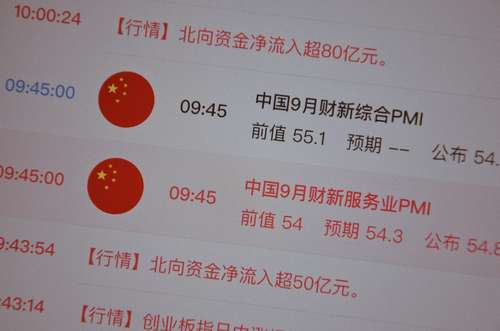The recent announcement that Chinese and U.S. officials have reached a framework deal on TikTok ownership has stirred conversation across boardrooms and dinner tables alike. It’s not every day that two global powerhouses take concrete steps toward easing the geopolitical tensions that have characterized their interactions. For many, this development is a breath of fresh air, and it signals a new era in international tech negotiations.
This framework deal has been crafted to address key issues such as data privacy, national security, and compliance with U.S. laws. As we look deeper into this arrangement, it becomes clear that the TikTok agreement isn’t just about a single social media platform—it could be a turning point for cross-border partnerships in the tech industry. Could this be the breakthrough that paves the way for smoother U.S.-China relations?
Not everyone is completely sold on the idea that this agreement will put all concerns to rest. After all, questions about app ownership and data security still linger in conversations on international business and digital economy forums. But the prospect of a negotiated solution to longstanding disputes is enough to capture interest worldwide. This is where the lines between technology negotiation and corporate strategy begin to blur, setting the stage for a more collaborative future.
Overview of the Framework Deal
This section gives you an idea of the building blocks behind the framework deal. It outlines both the broad strategic objectives and the detailed measures that will govern the TikTok ownership transition. The complexity of the deal reflects the broader challenges in managing cross-border tech ventures.
The framework deal has been designed to ensure that TikTok adheres strictly to U.S. laws while maintaining its operational viability. U.S. officials have worked closely with their Chinese counterparts to outline specific criteria under which data privacy will be improved. The deal places strong emphasis on creating safe data pathways, which is crucial for a social media platform that handles vast amounts of personal information.
The agreement is also about establishing a balanced corporate strategy that respects both U.S. and Chinese interests. Rather than a simple division of ownership, the framework elaborates on how TikTok will be governed to prevent misuse of data. This signals an important step for international business practices, where concerns over geopolitical tension are being methodically addressed.
The deal is not only about looking into the immediate risks but also about planting the seeds for future negotiations. A lot has been said about ensuring that the technology negotiation process remains transparent and compliant with national security concerns. It’s a delicate balancing act between fostering innovation and ensuring safety, something that many in the technology sector have been debating for years.
Implications for TikTok and Data Privacy
This section dives into how this framework deal affects TikTok directly, especially regarding data privacy and the future of U.S.-China relations in the tech industry. It’s an exploration of both immediate and long-term impacts on the app ownership structure.
One of the biggest takeaways from the deal is its approach to data privacy. By clarifying the responsibilities and ownership protocols, both sides are aiming to mitigate risks associated with data misuse. This is critically important because data collected via the platform touches on every aspect of our digital lives, from personal messaging to global trends.
For instance, if you’ve ever wondered about the security of your personal information on social media platforms, this deal is a reminder that data privacy remains a top priority for regulators on both sides of the Pacific.
The TikTok agreement may also set a precedent for how future technology negotiations will be conducted. It’s not simply a one-off measure but a framework that could influence similar arrangements in areas such as app ownership and cross-border digital economy issues. U.S.-China relations have seen their share of strife lately, and this deal is emblematic of a new willingness to find compromise amidst geopolitical tension.
This new framework could reshape the competitive landscape of the tech industry as well as the broader field of international business. As TikTok continues to be a major player on the global stage, stakeholders in the digital economy are keeping a close eye on how this deal evolves in implementation. The focus on secure data practices will undoubtedly play a critical role in maintaining consumer trust across platforms.
Future of U.S.-China Tech Negotiations
Looking forward, there’s a lot to consider regarding how this framework deal will serve as a blueprint for future negotiations between the two tech giants. The focus now shifts from immediate considerations to long-term impacts on U.S.-China relations in the realm of international business and technology negotiation.
Negotiators on both sides see this as a stepping stone to more comprehensive agreements that might cover a range of issues beyond TikTok. It’s a push towards building a more predictable and stable framework for collaboration. When you think about the intricate dynamics of global politics and corporate strategy, this deal is like laying down a new track in a well-traveled but often turbulent railway network.
The use of the term 'framework deal' underlines that this is not the final chapter in U.S.-China negotiations regarding tech. Instead, it’s the opening stanza in a long dialogue that needs to continue evolving. As each side reassesses its priorities in an ever-changing geopolitical arena, frameworks like this could prove crucial in maintaining a balance between national security and technological progress.
Every tech industry stakeholder will be watching closely as the agreement unfolds. Not only does it address pressing issues such as data privacy and compliance with stringent U.S. laws, but it also shines a light on the broader implications for international business and the digital economy. The framework deal offers a glimpse into what might be possible when global disputes are approached with a spirit of pragmatic compromise.
Consider the stakes: for TikTok, the deal ensures continuity of operations while addressing critical concerns. For the U.S. and Chinese governments, it represents a collaborative step that could ease geopolitical tensions and foster a more stable business environment. In essence, this deal is crafting a win-win scenario where both sides can secure their interests without resorting to aggressive posturing.
Looking Ahead and Wrapping Up
As we wrap up our look at this historic framework deal, it’s clear that there are numerous threads to untangle. This isn’t just an isolated incident in the world of tech ownership negotiations; it sets the stage for a future where international business can flourish despite political differences.
The TikTok agreement, crafted with painstaking attention to data privacy and legal compliance, has immense implications for the tech industry, corporate strategy, and international relations. It’s a bold move, aiming to create harmony in an arena that has been fraught with tension. With this deal, both China and the U.S. have signaled their commitment to pursuing fair and pragmatic solutions—a move that is likely to influence many other negotiations moving forward.
At the end of the day, this framework deal is a prime example of diplomacy meeting modern technology. It reinforces the idea that, even in times of geopolitical tension, there are ways to come together and find common ground. As we continue to watch developments in this space, one thing is certain: the future of U.S.-China tech negotiations will be looked upon as a testament to what thoughtful, collaborative problem-solving can achieve.




